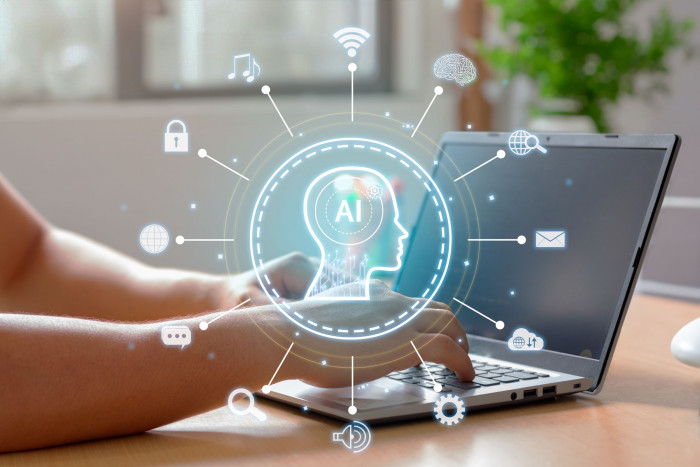The rapid advances in artificial intelligence (AI) create a new frontier in business innovation. Significant progress has been made in computing power, data storage and algorithms enabling the development of more sophisticated AI systems. Advanced software implementation processes, such as containerization and orchestration, advance AI applications and machine learning (ML) both in scope and in scope. For example, developers can now create, deploy and manage AI/ML workloads in a scalable and efficient manner with generally available solutions, such as Red Hat OpenShift Data Science and NVIDIA AI-ready Enterprise Platform.
All these technological delights make AI more accessible and practical in various fields. Among the disciplines it gives AI, IA generative is the catalyst that enables companies to create, iterate and optimize solutions for complex problems. The growing interest in generative AI offers an excellent opportunity to explore its potential and offer insights into its resources for transformative business applications.
What is generative AI?
Generative AI is a branch of AI that allows machines to create original content, such as images, texts and music. Unlike traditional AI systems that rely on predefined rules or explicit data patterns, generative AI uses complex neural networks to learn from vast sets of data and generate results autonomously.
Or that generative AI can make some business applications?
Generative AI is a huge promise to unlock creativity in various sectors. Companies can leverage generative AI to increase human creativity and accelerate innovation, driving operational efficiency, creating immersive marketing campaigns, detecting fraud or generating realistic virtual agents. With generative AI applications and the right data, companies can explore more possibilities, minimize risks, optimize production and automate tasks, leading to innovative and cost-saving solutions.
Personalized customer experiences
Customer customization is based on past business. Generative AI can play a key role in analyzing vast customer data to help business leaders understand preferences, behaviors and trends. With this knowledge, companies can dynamically generate personalized recommendations, targeted ads and personalized experiences, ultimately fostering stronger customer engagement and loyalty.
Generative AI is commonly used to develop virtual assistants and chatbots that can autonomously interact with customers, respond to queries and provide support. The commercial virtual assistant application has not existed for some time. For example, Watson Assistant was launched in July 2016 and is used throughout customer service, marketing and human resources. Virtual assistants with AI can improve customer service, automate routine tasks and improve user experience.
Simplifying operations and efficiency
Generative AI can drive operational efficiency by automating time-consuming and repetitive tasks. From the generation of automated reports and optimization of supply chain management to predictive maintenance and anomaly detection, companies can take advantage of generative AI to simplify operations, reduce costs and improve overall efficiency.
For example, Ansible Lightspeed (technical visualization) will help developers create Ansible Playbook automation more efficiently using generative AI such as IBM Watson Code Assistant. By automating mundane tasks, employees can focus on higher-value activities, thereby promoting productivity and organizational innovation.
Pressing for decision making
Generative AI can be a valuable tool for making data-based decisions. Companies can generate alternative scenarios, test hypotheses and make predictions by taking advantage of historical data and executing simulations. Generative AI can analyze large quantities of data, identify patterns and generate forecasts or simulations to assist decision-making processes. It can provide valuable insights, optimize operations and support strategic planning.
For example, Atomiton forecasts energy demand for manufacturers and identifies optimized ways to operate machines that consume energy outside the factory to reduce costs. This decision-making capacity enables business leaders to explore various outcomes, evaluate risks and optimize strategies in a wide variety of sectors.
Preserving privacy and security
Privacy and data security are essential for all companies, especially those in the areas of health and finance. Generative AI offers a privacy preservation approach, generating synthetic data that maintains the statistical properties of the original data set, guaranteeing individual privacy. This approach allows the sharing and collaboration of data while protecting confidential information.
Fraud detection and cyber security
Generative AI can help identify and prevent fraudulent activities by analyzing data patterns, anomalies and potential problems. It can improve security systems, detect vulnerabilities and mitigate risks. Certified Red Hat partner operators, such as Dynatrace, CrowdStrike and many others, use AI in different ways to detect fraud and ensure that new operations remain secure.
Generative AI is a transformational change in business applications. By equipping generative AI, companies can take advantage of unprecedented creativity, offer personalized experiences, simplify and protect operations, improve decision-making and promote innovation.
SOURCE: Red Hat Blog
We are Software.com.br, Official Representative of Minitab Engageno Brazil and also a reference in technology solutions for the corporate world in Latin America. Count on our consultants specialized in Software Licensing, Cybersecurity, DevOps, Infrastructure and Data Analytics.
See more about Red Hat on our site: Software.com.br









 6 min reading
6 min reading




